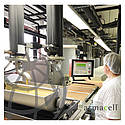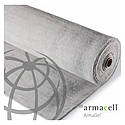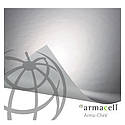Corrosion under insulation
The trillion dollar problem
Corrosion under insulation (CUI) refers to all types of corrosion that occur on the pipework or vessel surface beneath a thermal or acoustic insulation system. This arises primarily due to the moisture ingress resulting in damp insulation. CUI is insidious because the processes occur hidden beneath the insulation and cladding and are often only discovered much later when the damage caused is extensive. The global cost of corrosion is estimated to be US$2.5 trillion, equivalent to 3.4% of the global GDP (2013).
CUI is difficult to detect and can lead to plant shutdowns and in extreme cases lead to catastrophic failures.
Causes of CUI
MOISTURE INGRESS // CUI often occurs on pipes with a line temperature between 0 °C and175 °C. The risk increases on equipment which is operated discontinuously or at dual temperatures. Due to the fluctuating temperature, condensation can form on the surface of the insulation material. For conventional materials that rely on an external vapour barrier, moisture can seep through to make the insulation wet and reach the surface of the pipe, if the barrier is somehow damaged. Hence, depending on the application, a closed-cell elastomeric material with (or without) a flexible mechanical covering would be more ideal.
CHOICE OF INSULATION // Depending on the material and the environment of the operating system, situational factors such as presence of leachable chlorides and high temperatures coupled with humidity can result in corrosion.
Prevent CUI
Insulation alone cannot safeguard plant components against corrosion, but appropriate insulation systems can effectively support corrosion protection. Acidic corrosion can occur in the presence of chloride ions in applications where the operating temperature is above 100 °C. This is because while most, if any, condensate would have evaporated, vapour may still condense at the edge of the insulation and dissolve any acidic chemicals, resulting in corrosion of the pipe and/or jacketing. Consider the following points before choosing the right insulation system for your application.
- What is the operating temperature of your application?
- Is it a cyclic operation?
- Is it an indoor or outdoor application? Do you require additional cladding for mechanical and UV protection?
Learn how Armacell's insulation solutions can help you effectively prevent corrosion under insulation in your projects. Remember to also take note of our application tips. A reliable insulated system depends on both quality products as well as quality workmanship.


